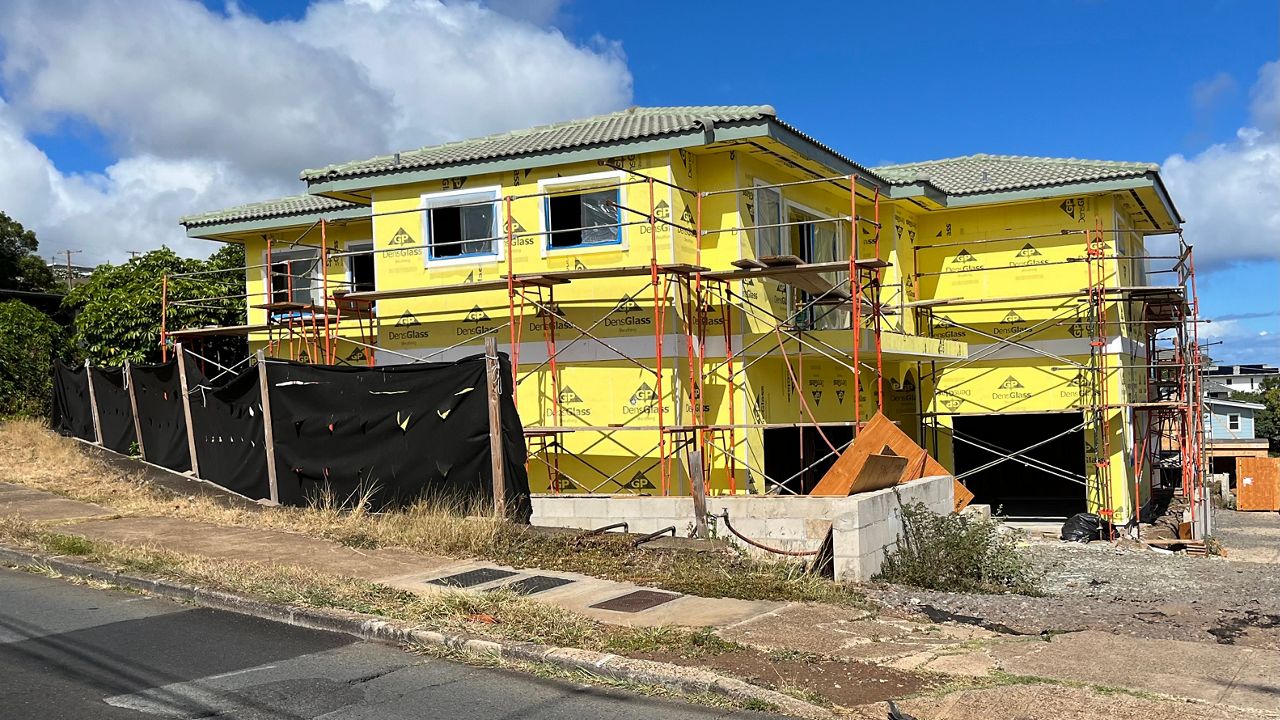The state Department of Planning and Permitting is in the process of revoking building permits for a controversial Sierra Drive residential project that critics have deemed another “monster home.”
According to DPP, an additional review of the project’s plans determined that the applicant had submitted incorrect information to the department and that the project is in violation of the city’s ordinance against oversized structures on residential lots.
The department issued notices of violation and stop-work orders to developer-owner Christy Lei, who is allowed to appeal the revocation to the Building Board of Appeals.
The project was issued three building permits, but a review found that incorrect information was submitted to DPP, including a floor area ratio that exceeded regulations. According to DPP, the project also exceeds the number of permitted bathrooms and wet bars and does not provide sufficient side yards.
In response to community complaints, DPP is also in the process of revoking permits for other projects in East Honolulu that violate the monster homes ordinance.
“The DPP strives to ensure lawful permitting of construction, to uphold the intent of the ‘monster homes’ ordinances to protect and preserve the character and livability of our residential neighborhoods, and to condemn and curtail regulatory abuses by applicants and others,” said Dawn Takeuchi Apuna, DPP deputy director. “It doesn’t end here. We are doing thorough reviews of other suspected monster homes and will take similar action if necessary.”
The DPP reported it has taken further steps to assure a more effective process in catching and preventing these types of errors, including investigations of personnel, a departmental directive on plan reviews and inspections, and filing of complaints to the Regulated Industries Complaints Office of the state Department of Commerce and Consumer Affairs of improper submittals by state-licensed professionals.
A 2019 law prohibits building oversized homes on residential lots, but applications for permits submitted before the effective date of the ban were still eligible for approval. A bill was passed a year later that set a one-year expiration on grandfathered applications.



